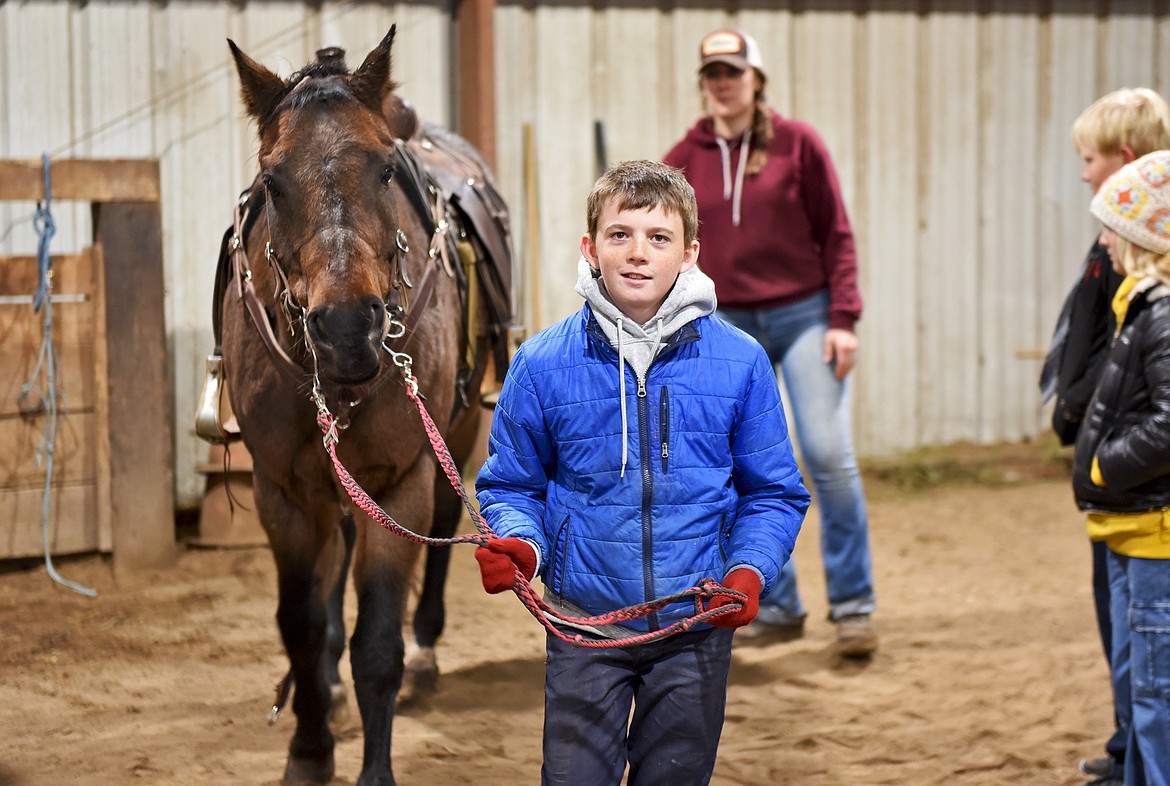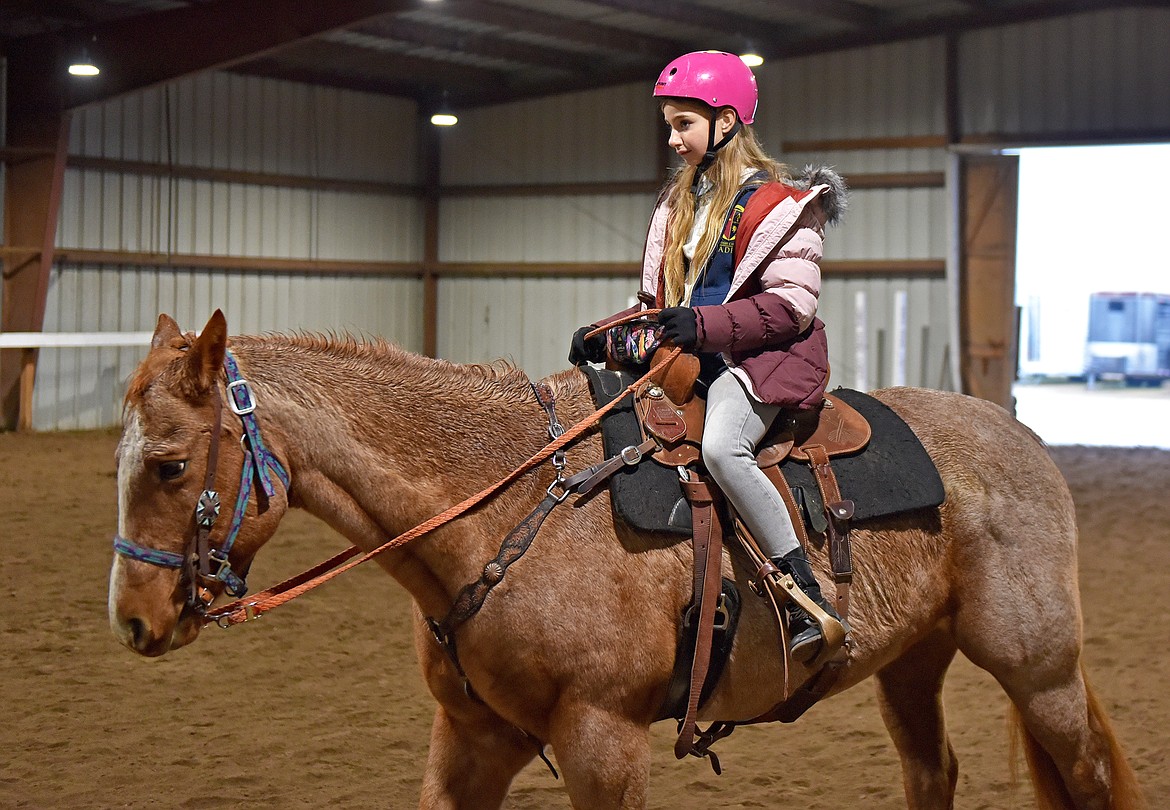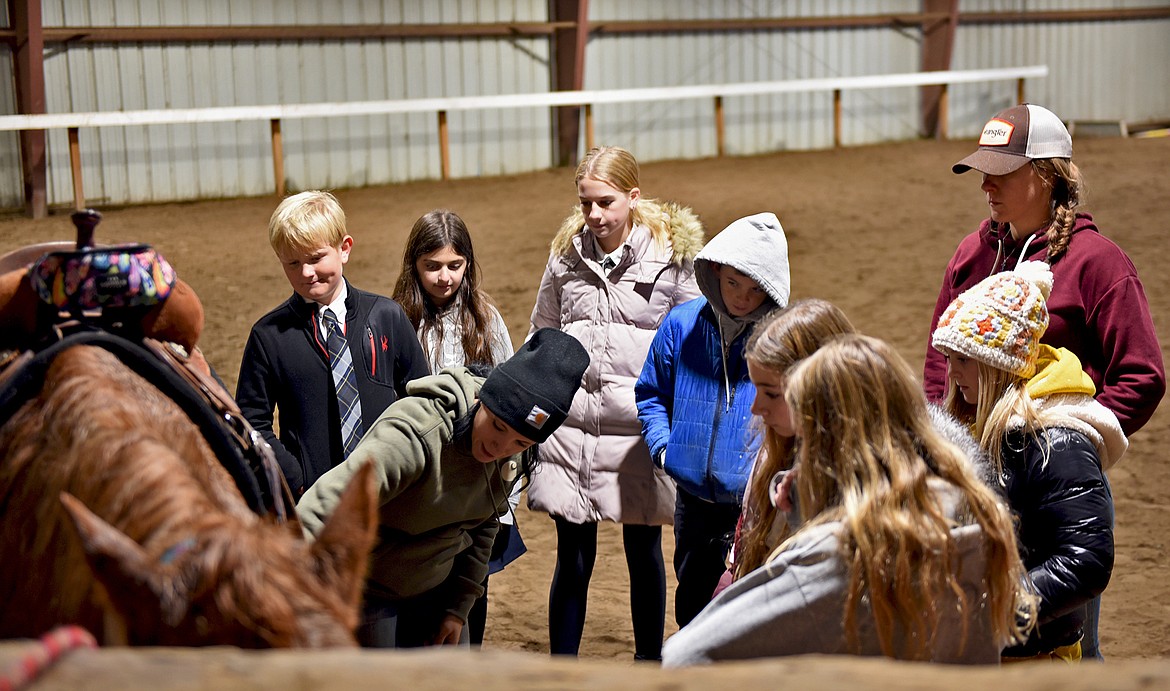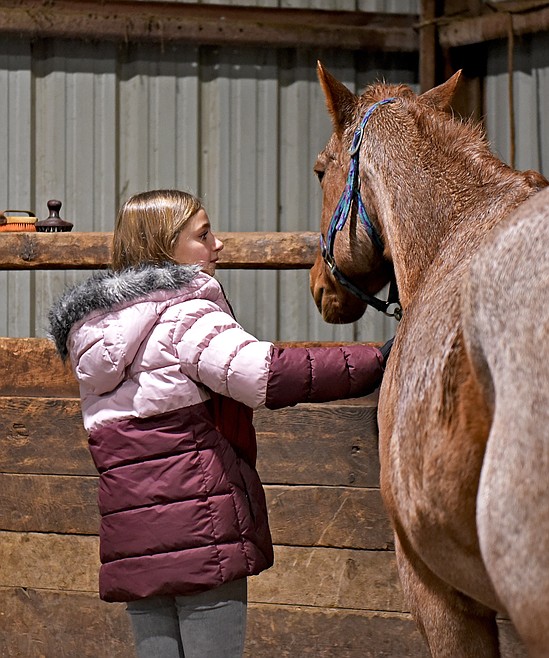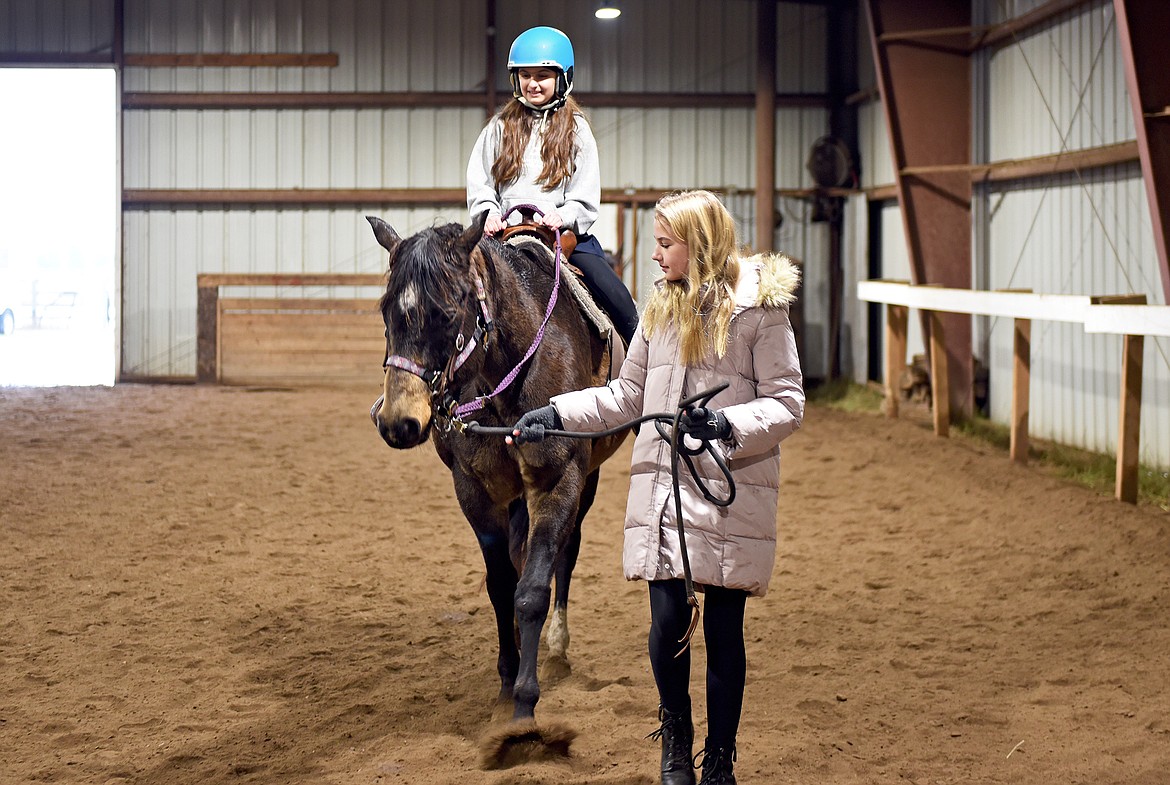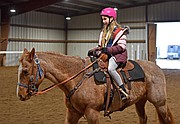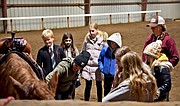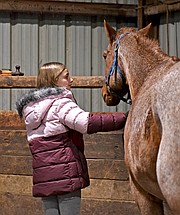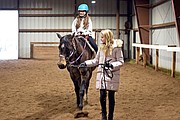Whitefish Christian Academy's horsemanship class supports school’s holistic approach to education
Building a relationship with a horse takes patience and kindness as well as a specific set of skills, and Whitefish Christian Academy students are learning that first hand this school year.
Students in sixth through eighth grade are participating in horsemanship classes at Lost Creek Ranch in Kalispell and expect to continue to visit the ranch monthly as part of a new program. Students begin by learning the basics of being around horses including grooming, feeding and the tack and the supplies needed. Then they work on building those skills further in the next class while progressing to leading the horses around the arena and eventually beginning horseback riding.
This progressive approach where the students learn skills that build upon each other throughout the year, even through the cold winter months, was thoughtfully designed by school administrators to teach true horsemanship.
“The idea behind the program was to not only have students learn how to horseback ride, but how to take care of the horse, to learn about the horses themselves and that way have a holistic program,” says Burton Gildersleeve, WCA director of athletics and marketing. “One that is not just about riding, but that’s about the relationship with the horse and cultivating that relationship over time.”
Gildersleeve added that the new horsemanship program, which is now part of the physical education curriculum, aligns with the cademy’s approach to education.
“We firmly believe that we’re teaching the students here in mind, body and soul — it's not only about acquiring skills and knowledge, but also building character.”
Additionally the academy was interested in forming the new program because horsemanship runs deep in Montana history and culture. As part of nature studies and physical education learning, students hopefully will form a better understanding and appreciation of where they live.
“We’re in Montana and part of the history of Montana is very much tied to horsemanship,” Gildersleeve said. “As a school we’re seeking to connect the students with the place in which they live… both with the history and what makes Montana beautiful now.”
Lost Creek Ranch owner and instructor Chanel Olson helped the academy form the horsemanship program. Both Olson and the academy’s vision for the class were consistent with one another as they share a similar value in a holistic philosophy regarding horses and education.
“I really love how Burton came and presented it, explained their school and their philosophy,” Olson said. “It was just really in line with how I feel too with my horses and what I want to teach.”
Olson has been around horses her entire life and has taught horsemanship for over 20 years. She emphasizes correct horsemanship practices and treating the horses with respect and love. She says building a connection with a horse on the ground first really translates to under the saddle. Olson’s passion for teaching lies with seeing the full picture of teaching young kids who later own their own horses.
“For some people it’s just an experience… but what really drives me is that really wanting to learn and be with the horses, and that’s what gets me fired up,” she said.
While teaching the students, Olson takes the time to connect with them and understand where they are coming from. She is patient and her desire to teach the right way to interact with horses shines through as she demonstrates how to care for the animals.
“We’ve seen eye-to-eye in terms of the philosophy and goals of the program,” Gildersleeve said of Olson. “We want the students not just to ride horses, but to love horses.”
“She’s really a talented teacher and very adept with the kids,” he added.
Although every student willingly participates in the program, it hasn’t been all smooth sailing through the first couple sessions.
Gildersleeve said some kids are scared of horses, some ecstatic to ride and others fall somewhere in between. But no matter their feelings on the first day, they all have shown progress the more time spent in the arena.
In the future the academy aims to make the horsemanship class a permanent part of its curriculum and something that the students can continue to build upon not only throughout one school year, but also as they progress from sixth grade to graduating from the academy in eighth grade.

